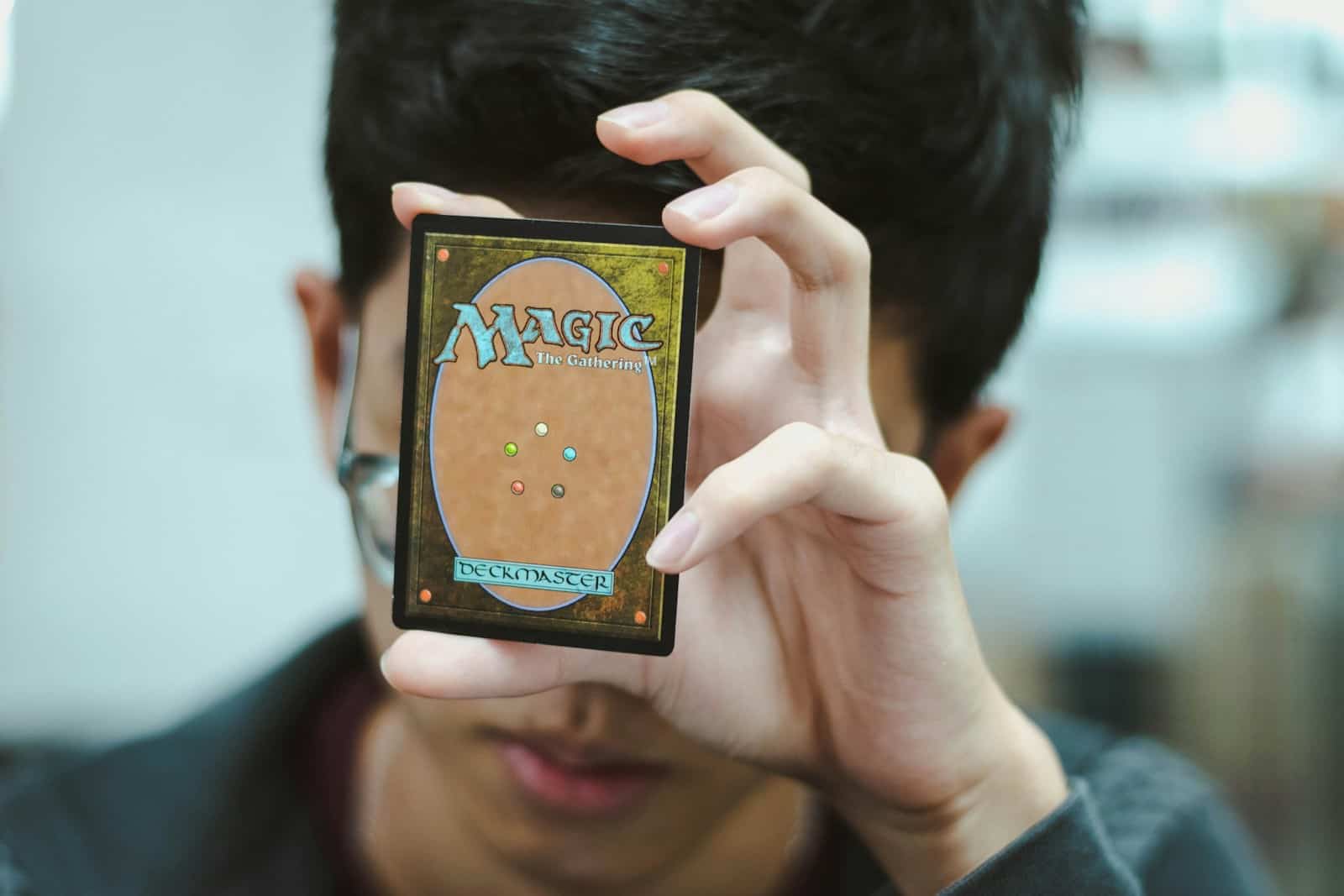
Photo by Wayne Low on Unsplash
Will Hasbro Sink, Stay Afloat, or Swim?
In a recent interview on NPR’s Here & Now Anytime podcast, Hasbro CEO Chris Cocks delved into several key topics, shedding light on the company’s recent layoffs, the shift toward games over toys, the fallout from leaked D&D changes, and the issue of overproduction in “Magic: The Gathering.”
Addressing the layoffs that affected 1,100 positions in December, including senior employees at Wizards of the Coast, Cocks clarified that the bulk of the cuts targeted the toy sector. However, he acknowledged that WotC also felt the impact, citing evolving priorities within the growing business.
Transitioning to the move from toys to games, Cocks highlighted the divergent growth rates, with games experiencing stronger expansion compared to the relatively stagnant toy sector. “Games have been growing at mid to high single digits for the last decade,” Cocks explained. “Toys have been growing more like a single-digit basis for the last, 10, 20 years. A lot of that has to do with birth rates and kind of like the changing nature of play. Increasingly, people are playing at older and older ages. They’re playing well into adulthood, but they’re shifting to more games at early and earlier ages, both tabletop as well as digital games.”
Hasbro’s ‘Magic: The Gathering’ Woes
On the issue of the collectible card game “Magic: The Gathering’s” potential overproduction, Cocks defended the game’s expansion, attributing it to novel casual play formats and a broadening player demographic. Notably, he pointed out that the player base for Magic now boasts a substantial 35% non-male representation, slightly lower than D&D’s 45%.
Moreover, “Magic: The Gathering” fans are expressing frustration over the increasing cost of the classic card game, blaming Hasbro for making it too expensive. With a constant stream of new products being released, fans feel pressured to keep up by purchasing these cards, leading to financial strain. Analysts have criticized Hasbro for prioritizing profit over customer goodwill, causing a backlash within the Magic community. The company’s aggressive release schedule and high prices have alienated long-time fans, prompting some to explore alternative card games.
Bank of America has also warned over the last few years that Hasbro has been ruining and diluting the Magic brand. As a result, they’ve been downgrading the brand’s stock value. This comes as many fans on social media have also criticized how “Magic: The Gathering” has lost its identity and is being squeezed dry due to constant investor demands. Considering how “Magic: The Gathering” and Wizards of the Coast have become the most profitable segment for Hasbro, these claims might become a reality.
Challenges and Triumphs for Dungeons & Dragons
Regarding the controversial leaked (and then dropped) alterations to the Dungeons & Dragons Open Gaming License in early 2023, Cocks asserted that despite the initial backlash, the brand’s overall satisfaction metrics remained positive, indicating resilience against potential damage. This was combined with the disappointing box office performance of the movie “Dungeons & Dragons: Honor Among Thieves.” This led to the layoffs just before Christmas, primarily in the toy division, that affected over 1,000 jobs.
It seems the company is doubling down on its commitment to tabletop and digital gaming as it celebrates the 50th anniversary of D&D. In his interview, Cocks highlighted the growing popularity of their board games and D&D adaptations, pointing to the success of the video game “Baldur’s Gate 3,” which won the top prize at the 2023 Game Awards and has sold over 10 million copies.
Despite setbacks, Hasbro remains optimistic about the future of its gaming properties. Cocks emphasized the company’s long-term commitment to fostering fan satisfaction and passing the torch to new generations of players. Hasbro’s investment in digital projects, such as the upcoming video game “Exodus” starring Matthew McConaughey, reflects its dedication to innovation.
While facing competition from franchises like Critical Role and a plethora of alternative roleplaying games, Hasbro continues to expand its reach. The success of licensed mobile games like “Monopoly GO!” and record profits from “Magic: The Gathering” demonstrate the company’s diverse portfolio and adaptability to changing market trends. But how long can Hasbro rely on Magic when frustration has been growing among fans?
In response to concerns from fans, Cocks assures a collaborative approach, valuing community feedback and striving to maintain the integrity of beloved brands like D&D. Despite criticisms, Hasbro’s strategic decisions aim to broaden accessibility and appeal to a wider audience, including casual and diverse players.
The Future of Hasbro?
Looking ahead, Hasbro’s vision encompasses both traditional tabletop gaming and blockbuster digital experiences. With investments in entertainment spanning Hollywood movies, TV shows, and video games, the company seeks to captivate audiences across generations and mediums.
Recently, in an attempt to increase its brand awareness, Hasbro announced it is teaming up with Frito-Lay this spring for a joint promotion focused on family fun. Through TV, digital, and social media platforms, the brands are showcasing how snacks and games can bring people closer together.
Meanwhile, it seems that Hasbro has lost touch with how the market of toys and toy stores has been evolving in a culture that’s being groomed with social media, apps, and mobile games. With this shift, it appears that the toy market’s troubles are only beginning.
Discussion Questions
How can retailers adapt to changing consumer trends while maintaining profitability and customer loyalty in industries like Hasbro’s?
How should Hasbro balance revenue goals with brand loyalty in the face of pricing and product saturation challenges?
What strategies should Hasbro implement to address concerns about brand integrity, pricing, and competition in evolving markets?
